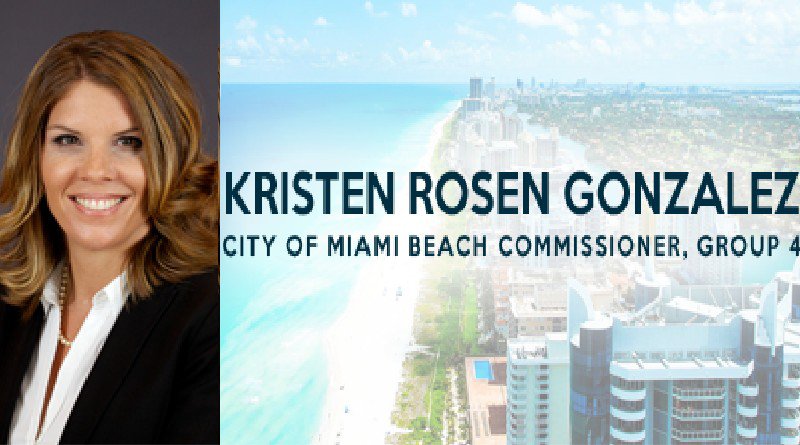by: David Arthur Walters. (Speical to City Debate) On 10 November 2014, I was informed by a City of Miami Beach source, who spoke anonymously because he was not authorized to speak to the press for publication, that my report pertaining to the “integrity” of the department’s director, Hernan Cardeno Esq. had offended Mr. Cardeno, and, perhaps, his wife as well, who knows he is a man of great integrity.
First of all, my reports in no way impugned the personal integrity of Mr. Cardeno, who is a member of the Florida Bar, a sworn police officer, and liaison to the FBI.
Mr. Cardeno, whom I hold in the highest regard, was put in command of the Code Compliance Division of the Building Department in 2012 subsequent to the latest round of arrests of enforcement officers. Expectations were high that he would clean up the division. I simply questioned his 15 January 2013 promotion to permanent director of the division when it was converted to a standalone Department. A department director has considerably more power than a subordinate division supervisor.
Mr. Cardeno’s appointment by Jimmy Morales Esq., the city manager, was approved by the city commission on the basis of his “integrity” and his stellar resume. The city clerk, Rafael E. Granado, Esq., in response to my public record request, confirmed that the appointment was not based on an “objective record of improved performance” of Mr. Cardeno, or on “measurable empirical improvements” of Code Compliance. When I asked James Sutter, the city’s internal auditor, for an audit of certain aspects of Code Compliance performance, he broke off communications with me.
Integrity means the integration of behavior with standards of behavior. The standard may be ethical, which is difficult to measure since definitions of the Good vary; or it may be moral, which is easier to ascertain since it refers to customarily acceptable behavior; or it may be absolutely defined, such as the production of 10 widgets per hour.
On a range of 1 to 5, a darling may get a 5 for his ability to “get along with others,” but how did he get along with mathematics? Perhaps his score was 62% on the math final. Should we hire him as director or engineer of our spaceflight program?
I did not doubt that Mr. Cardeno, who was my exemplary man for sake of argument, is a fine man with a great resume after 30 years of surviving as a police officer. I did not need to pull his Internal Affairs records from the police departments he has worked for because I could tell he has great personal integrity just from speaking with him for five minutes. That was not my point. My point was that concrete improvements were expected of him, so what were they? How could the city manager and the commission promote anyone to more authority on the basis of the word “integrity” and a resume into which no inquiry as to objective performance details had been made?
This is not personal, it is business. Our strong city manager, weak mayor system of city government was conceived with an objective in mind, of conducting the city’s business in a businesslike fashion. The city manager is ideally a professional chief executive officer who will exercise the will of the commission or board of directors in an apolitical, efficient and effective manner. S/he will object if that will is corrupted or its execution would be contrary to good business practice.
As any competent businessman can vouch, the businesslike objective does not obtain when people are hired and promoted on the basis of the word ‘integrity’ and resumes without objective performance scrutiny. The city, in that respect, would then lack integrity with its constitutional objective.
City Manager Jimmy Morales is another man of great personal integrity, so much that he is often called Mister Nice Guy. Harvard law grad; former Miami commissioner; former city attorney for troubled Doral; political insider; former gubernatorial aspirant; local boy come home;—all that spells one kind of integrity. He was learning on the job back then. The fact that he had no private or public business management experience was contrary to the intent of the city charter. The city failed to meet its formal businesslike goal when it shooed him into the job despite the several recommendations of a professional recruitment firm. He and the city lack unity or integrity in that regard.
In fact, the city commission wants formal integrity when it approves of any appointments on the basis of declared personal integrity without proof of performance that integrates with definite standards.
The city’s new mayor, Philip Levine, a public relations mogul and real estate developer, is indeed a businessman. It is oft repeated that he purchased a majority on the commission with his own money so he could clean up the city. Unlike Mr. Morales, he lacked the political sophistication that had caused the city manager, as an astute politician, to be called “spineless” for bending to his will. City Commissioner Michael Grieco, Esq. declared that the commission followed the recommendations of Mr. Morales “almost blindly,” without adding that obeisance was because the city manager did the commission’s bidding to keep his job.
Mr. Levine, a political novice who is now running for Governor of Florida, needed some spinelessness, as he stood in his own way. He deserves credit for leading considerable advances in less than a handful of areas of broad concern that attract the “legitimate” media attention he obsessively cultivates. At least 100% appreciation of his advances, many of them initiated by the preceding regime, were always required by him. Therefore, internal criticism of flaws along the way was vigorously repressed, while many other areas needful of attention were ignored or improvement therein unheralded because public airing of those needs might arouse the complacent majority.
Quite frankly, the city’s public relations and communications department, always deplorable, had become pathetic under Mr. Levine’s tight-lipped grimace. Public relations even deteriorated to a ridiculous, Facebook-page-level pursuant to the cowardly censorship policy of the new regime, with the deletion of criticism or disallowance of any comment besides “Like.”
However, that sort of communications approach can be said to be businesslike, in a Mussolini sort of way. Mussolini selected his own legitimate press organs as he wormed his way onto all the committees until they were integrated into his corporation, which he managed from the top down; he was eventually hung upside down in the public square.
That temporarily winning style served as a warning to advocates of a strong mayor system, which might degenerate to a fascistic, right-wing, big business approach, with great leaders elected against the best interest of the unwitting electorate. At least the term of office would be limited. Ideally, there would be a separation of powers or branches to oppose executive tyranny. On the other hand, the classical objection to the strong city manager system is that the city manager is really an unelected politician influenced by a commission or bureau of the business elite, so the system, which has no separation of powers, tends more to fascism than a strong mayor constitution. That is not the kind of integrity members of the Category of One desire.
The total integration of business and government must be avoided, but that is not to say that government cannot do as well as business in managing the public business given measurable standards, something the City of Miami Beach seems to avoid in some departments.
Mayor Levine had good reason to be paranoid; paranoia is the bane of modern man. That being said, his paranoid style is derived not only from a delusion of persecution but also from a delusion of grandeur made obvious in his effort to develop a cult of personality. That style might have led back then to an ambassadorship thanks in part to his friendship with the Clintons, but it stood in the way of underlings, who were not allowed to publicly speak of the cleanups in progress for fear of revealing just how much dirt had been swept under the rug, something the new mayor now has to contend with. If they did so, their integrity might be impugned.
Cynics by natural disposition always find a reason to suspect the cleanups and reforms are a farce. No matter how clean things get, plenty of dirt will remain to be dug up. So ignore naysayers, ignore the negative by incorporating it in the positive. Just remember that things are better than before. Ignore anyone who points out a few bad blades of grass in the nice lawn.
Mind you that underutilized computer software can always be blamed for whatever flaws that do come to light. Sorry, we do not have the software to compare the present with the past that haunts us. The new software will be up and running any day now after talking about it for years. Do not worry in the meantime because we have we have integrity and resumes of long experience doing this.
This is the best of all possible cities, is it not? As Candide so often said, “All is not so well as in EI Dorado; but all does not go so badly.” Yet our city lacked integrity. Hypocrisy is our underlying crisis. We may never integrate reality with ideality. Nevertheless, a better effort must be made to match deeds with words. For that, we need ladies and gentleman, and objective standards and reports.
More stories by David Arthur Walters click here










